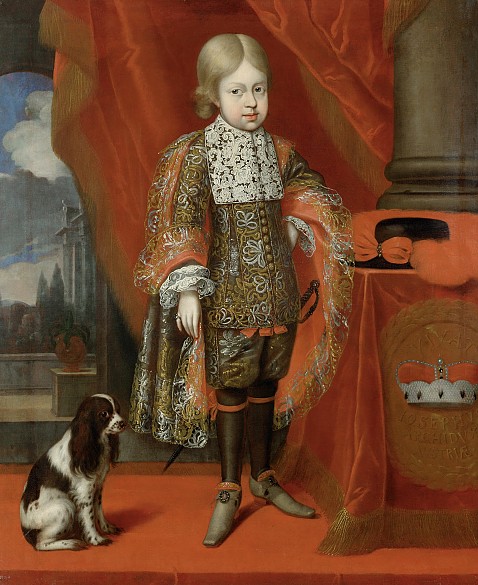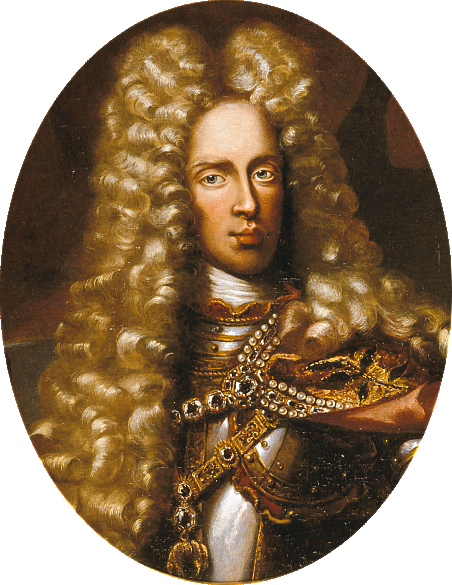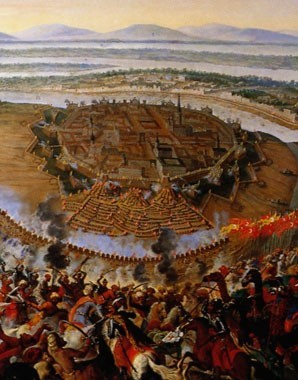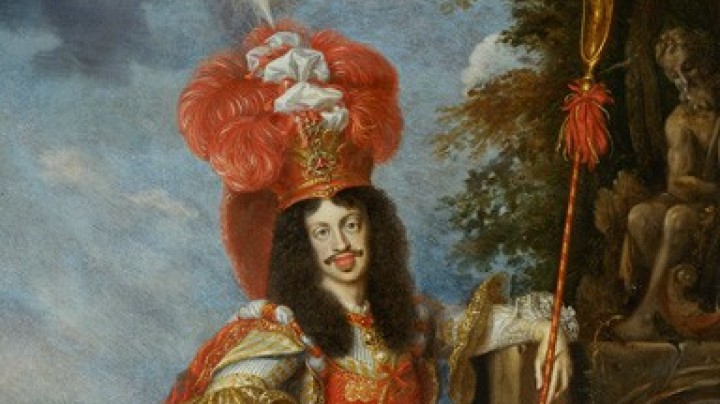Joseph I: repository of the dynasty’s hopes
Joseph I grew up during an age of optimism and new beginnings. After the defeat of the Turkish army at the siege of Vienna in 1683 the Habsburg Monarchy went on the offensive. A new Great Power arose on the Danube: the House of Habsburg was now entering its ‘heroic age’.
His youth was marked by a series of wars, in which his father’s armies were largely successful. Victory over the Ottoman Empire gave the dynasty new self-confidence. The conflict with the Sublime Porte for hegemony in the central European Danube region had now finally been decided in favour of the Habsburgs.
Joseph was the first-born son of Emperor Leopold I and his third wife, Eleonore Magdalena of Palatinate-Neuburg. Leopold started to groom his elder son, a strong, healthy child, as his successor at an early age. In 1687, at the age of only nine, the young prince was crowned King of Hungary. Leopold was here capitalizing on his successes in the war against the Turks: the ancient royal city of Buda had been conquered by Leopold’s troops in 1686, thus impressively confirming Habsburg dominion in Hungary in the eyes of the Hungarian Estates. Three years later Joseph was granted the title of Roman King and thus accepted by the electors as his father’s successor to the imperial throne.
Even in his appearance Joseph was not a typical Habsburg: he had escaped inheriting the classic features that occurred frequently in the dynastic bloodline, most notably the prognathic jaw accompanied by the fleshy ‘Habsburg lip’. Contemporary accounts describe the crown prince as unusually handsome. His personality also differed markedly from his forebears: Joseph had a far more self-assured, cosmopolitan demeanour than his deeply religious or even bigoted predecessors, who effaced their personalities behind their imperial office. Much to the sorrow of his deeply devout parents he developed a marked inclination for amorous adventures and other escapades.















